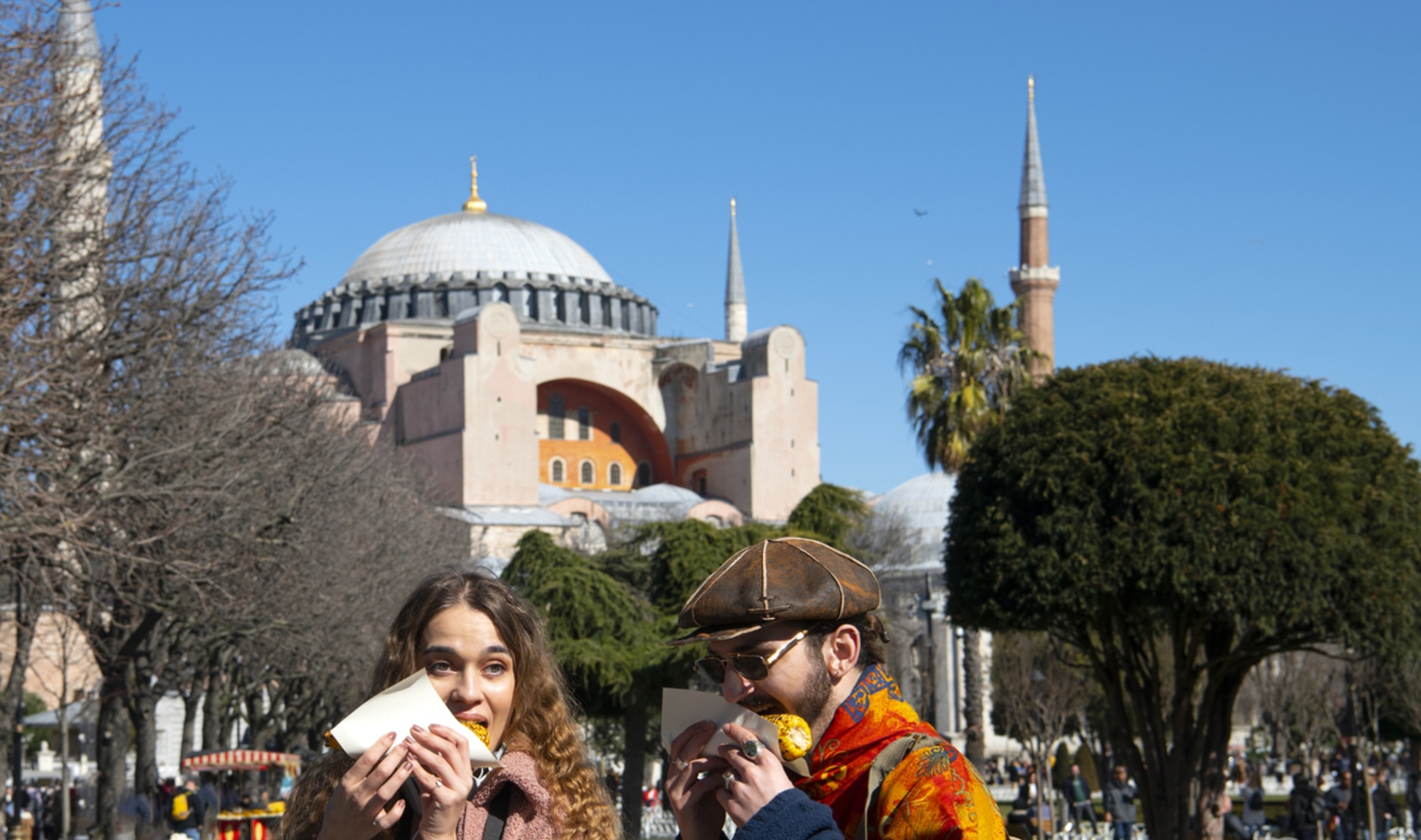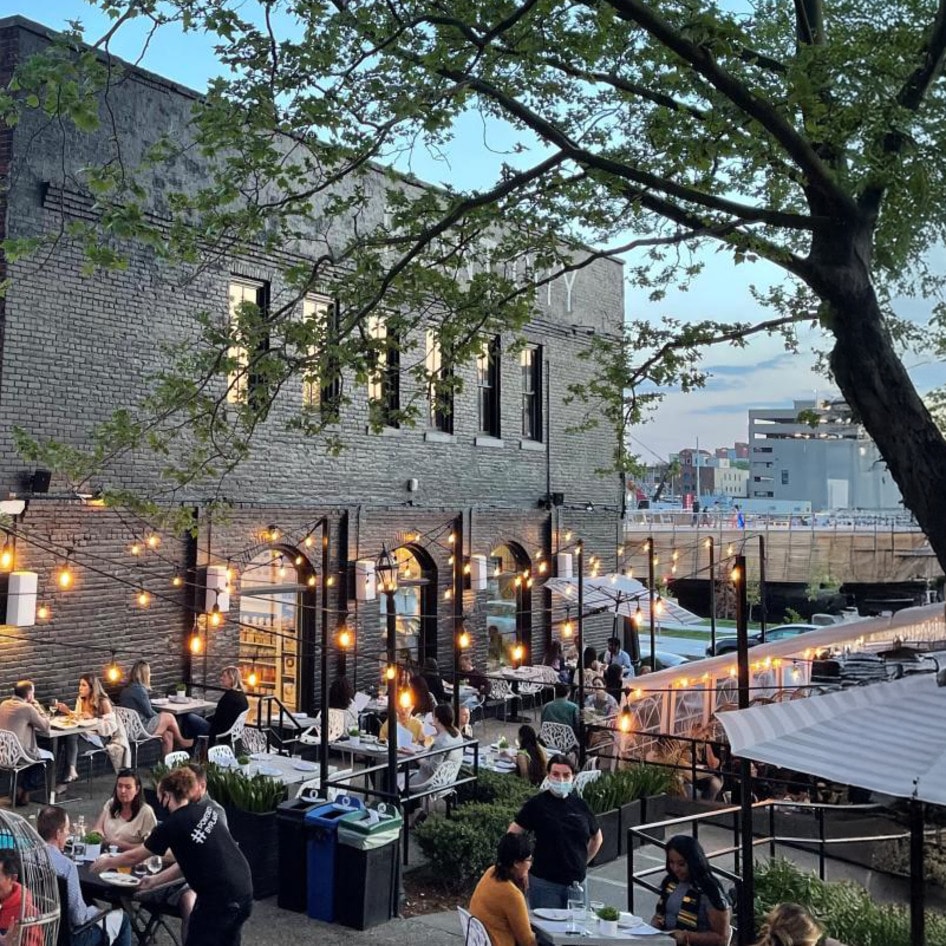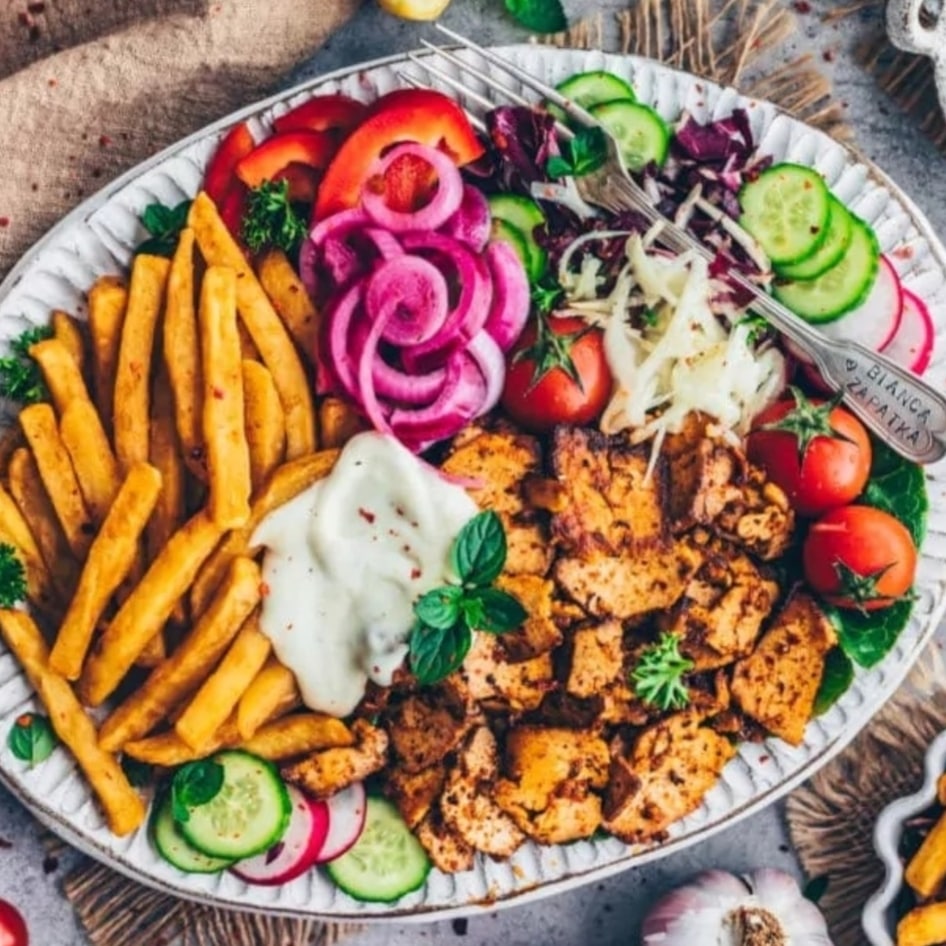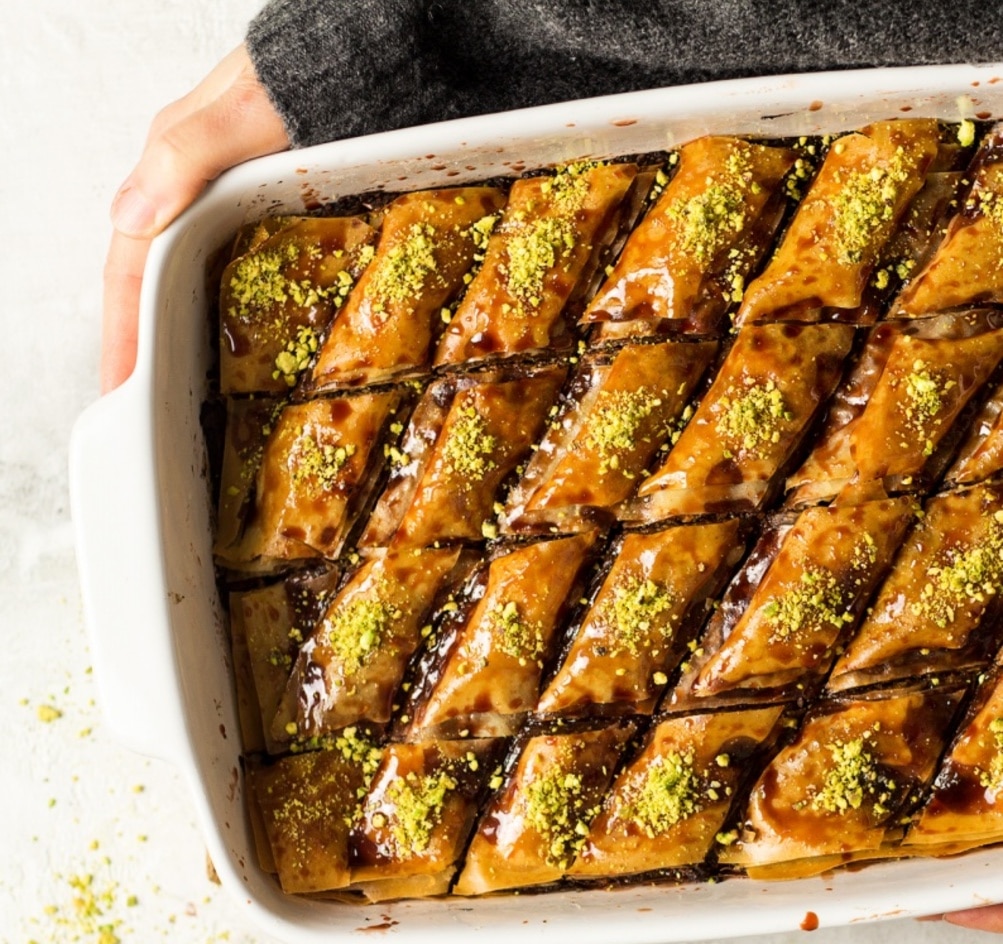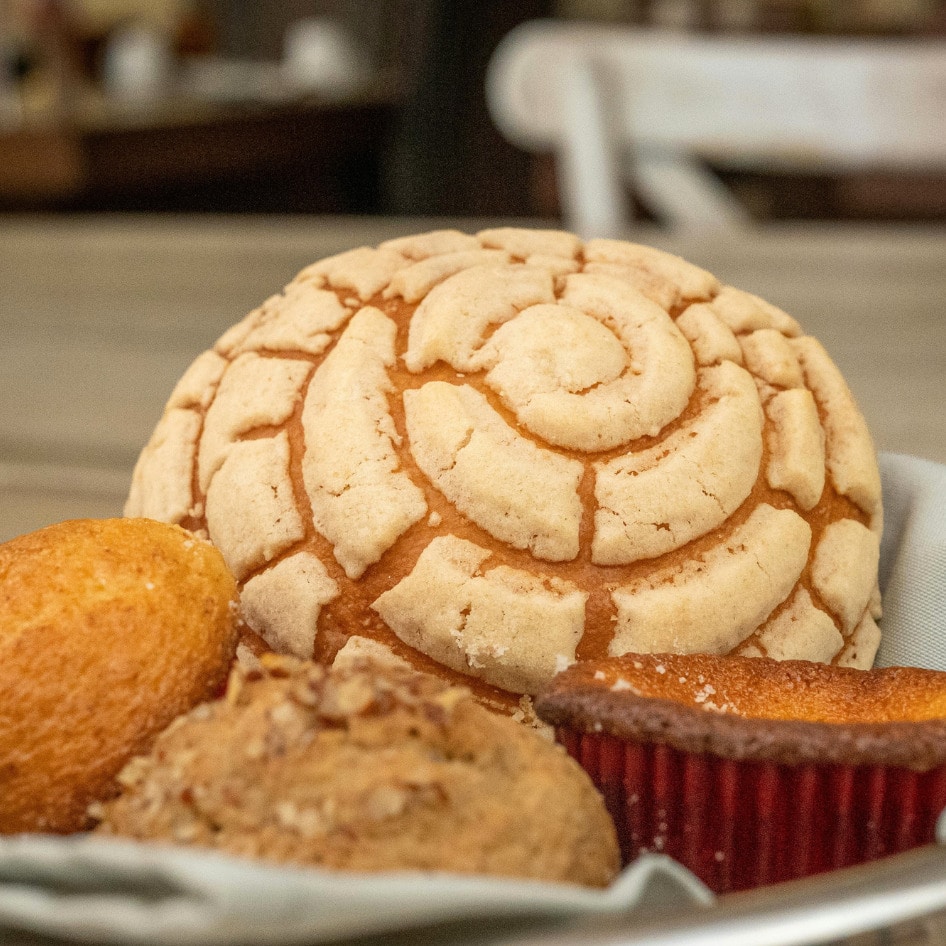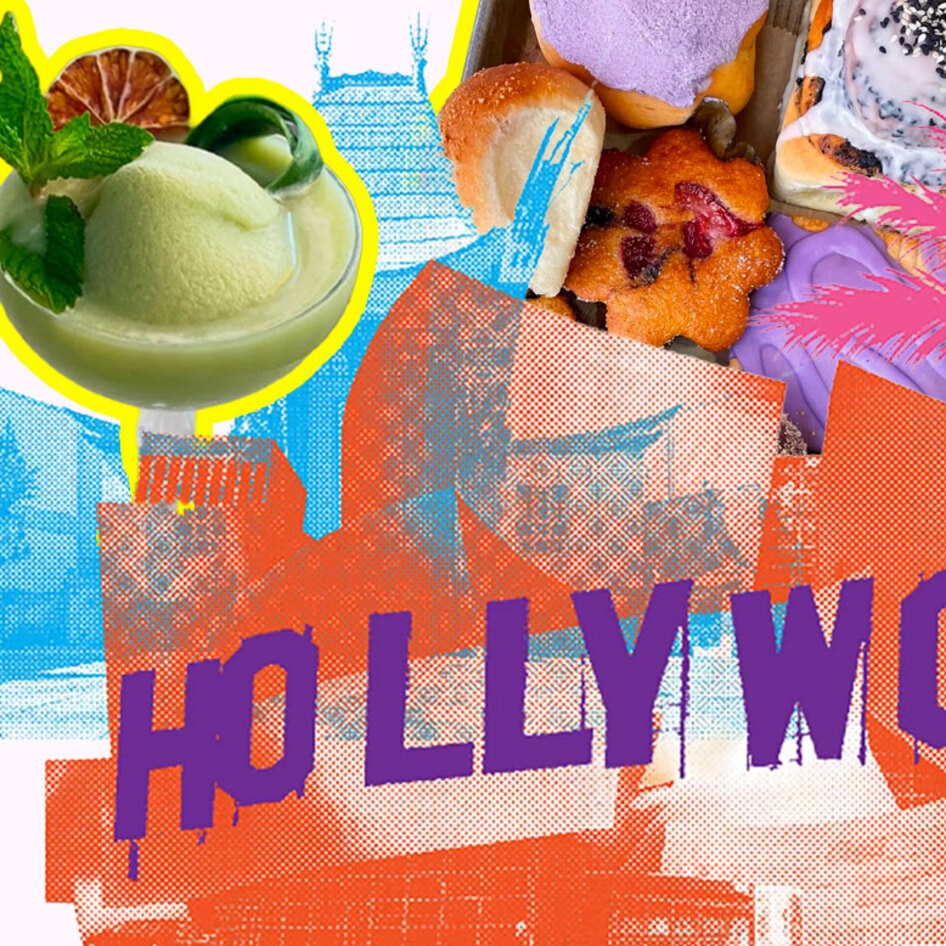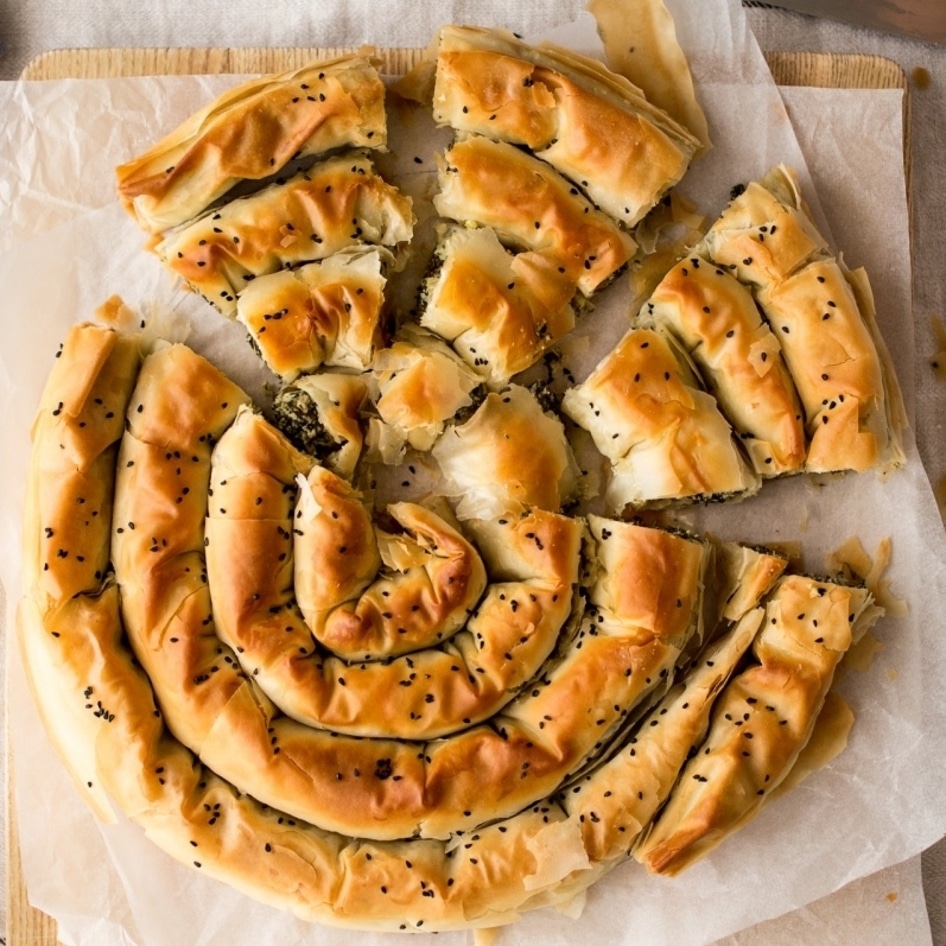For thousands of years, Istanbul has been a crossroads between worlds, combining East and West in its own distinctive and uniquely self-assured culture.
You can feel it strolling the Grand Bazaar, the largest covered market in the world and once the terminus of both the Silk Road across Asia and the Spice Route through the Indian Ocean. It’s a kaleidoscope of riches: piles of spices and herbs, handicrafts, clothing, and tempting sweets.
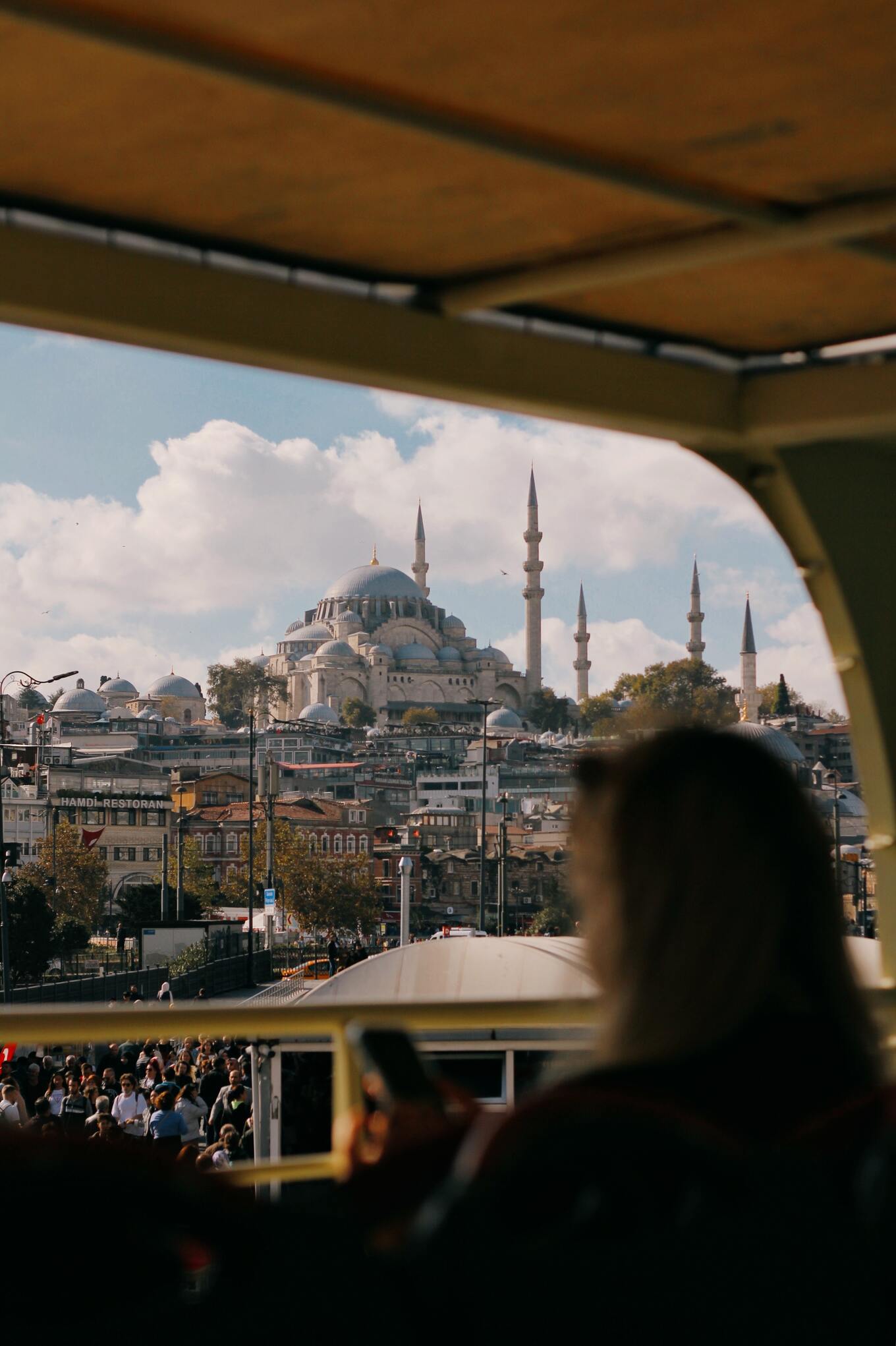 Beyzanur K.
Beyzanur K.
You can feel it floating in a ferry in the middle of the Bosphorus, the waterway running through this city of 15.5 million people, separating Europe from Asia. As the sun slips behind Byzantine-influenced domes and needlelike spires of the city’s magnificent mosques, they turn into silhouettes cut from the orange sky. Ancient streets come alive with lights and the call to prayer echoes from the shore.
And you can feel it in the city’s scrappy and committed vegan scene. Drawing ingredients and techniques from throughout the erstwhile Ottoman empire, much of Turkish cuisine is vegan or can be easily veganized. And today, with the advent of new techniques in faux meat and dairy, even the flesh-forward aspects of the cuisine (and there are many) are being reimagined by a bold vanguard of restaurateurs.
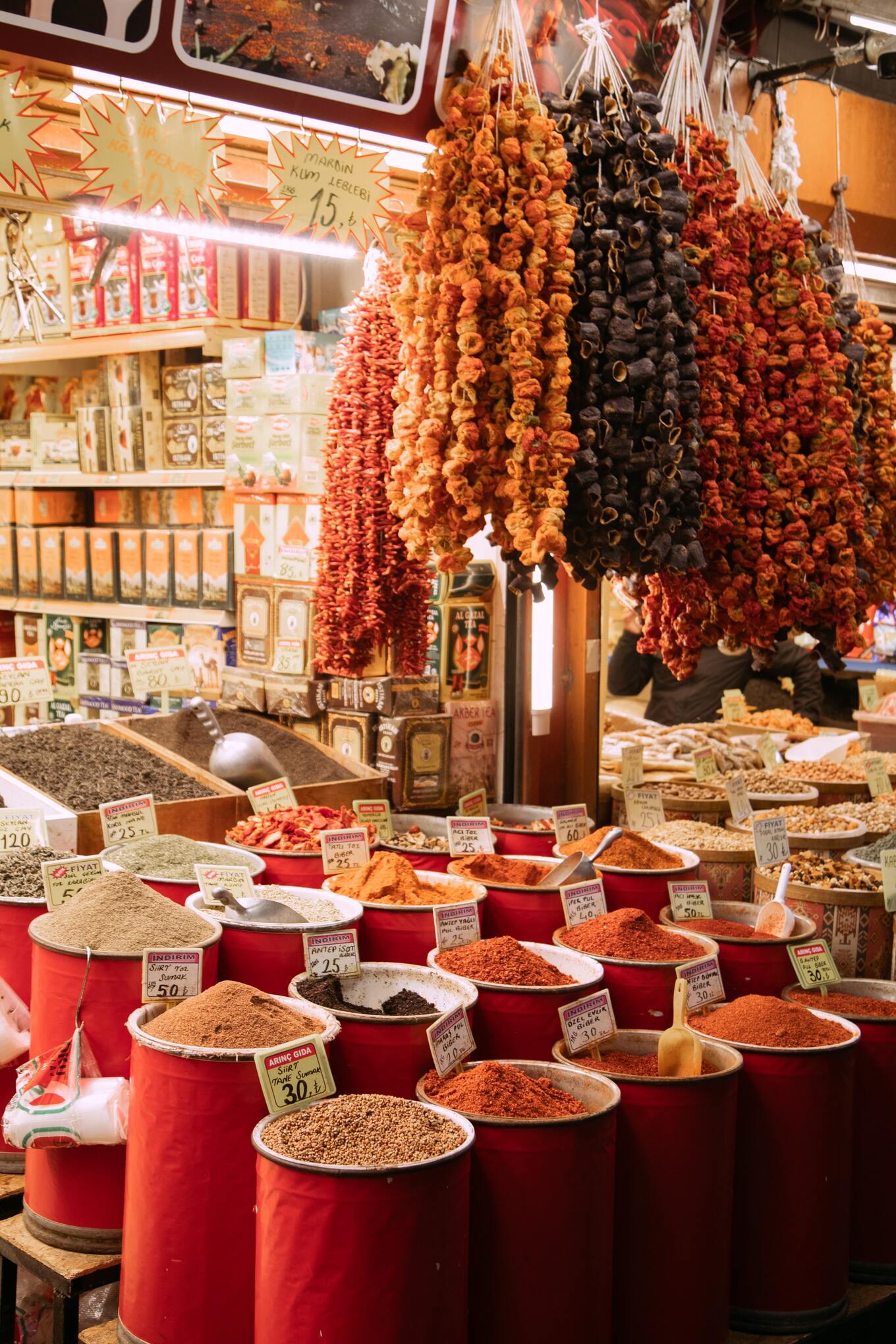 Meruyert Gonullu
Meruyert Gonullu
Where to dine vegan in the land of spice and silk?
I was staying in Cihangir, an old neighborhood not far from the city’s famed and scenic Golden Horn waterway, so on my first night there I wandered over to Vegan Istanbul, a well-lit, friendly place on two levels that features a case full of vegan versions of traditional Turkish dishes. I indulged in an unctuous, braised seitan served with sautéed greens and succulently soft zucchini and peppers stewed with tomatoes and onions, along with meaty balls of bulgur wheat in a zesty tomato sauce. It was all accompanied by a bulgur salad dotted with cooked carrots and alive with a sweet and tangy vinegar dressing.
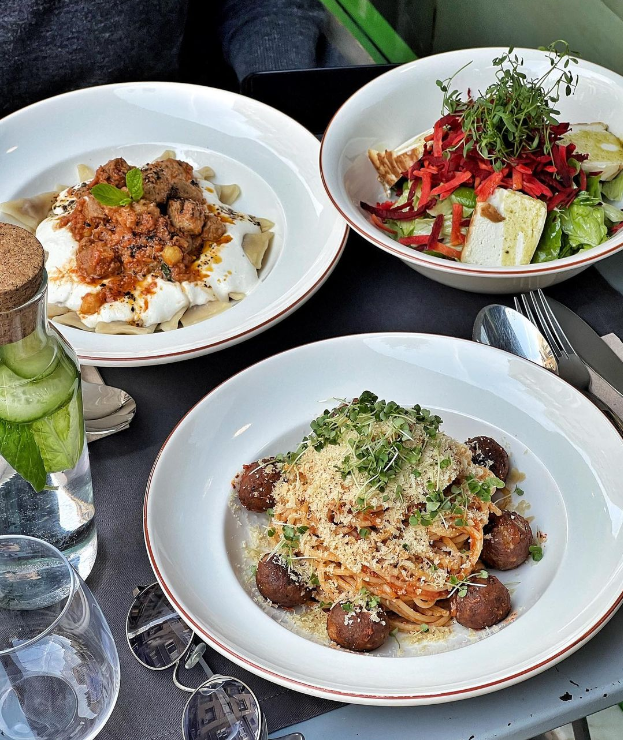 Vegan Dükkan Lokanta
Vegan Dükkan Lokanta
For a more elegant vegan experience, I visited Vegan Dükkan Lokanta, a cozy little restaurant off a side alley just a few blocks away from Vegan Istanbul. The restaurant is a new expansion of the small but well-loved shop next door: 18-year-old Vegan Dükkan, which prides itself on being “the first and only store in Turkey that sells completely vegan products.”
“We spent two months working on the recipes,” says owner Tartan Apari. “We decided to have a small menu focusing on special food created with high-quality ingredients.”
The results are delicious, carefully composed plates. I tried manti, triangular ravioli-like dumplings filled with ground soy mixed with fresh parsley. They were topped with vegan yogurt and braised seitan in a tomatoey garlic sauce studded with chickpeas. The dish’s herbal, savory, earthy flavors blended seamlessly with the tart, creamy yogurt, enhancing the tanginess of the sauce as the slippery pasta rolled languidly on the tongue.
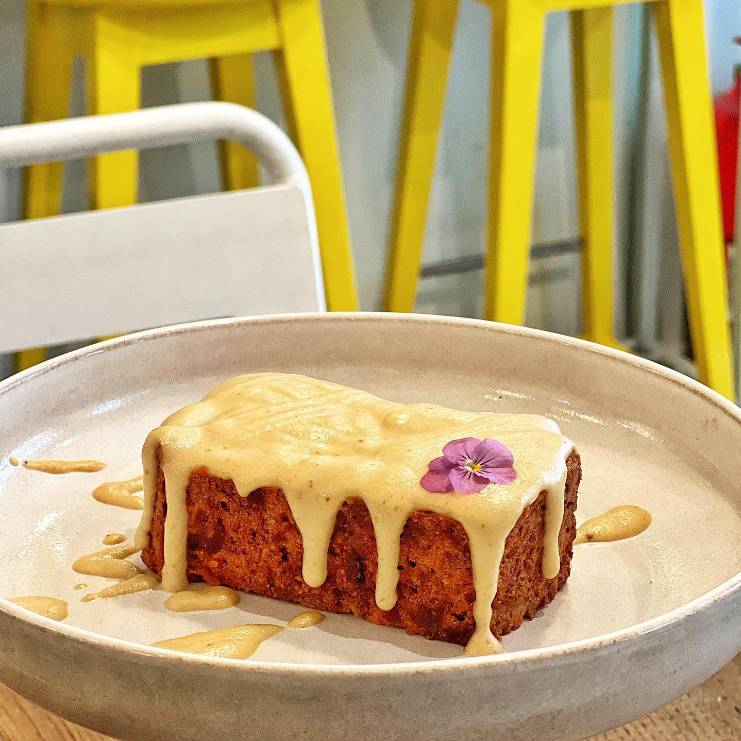 Vegan Dükkan Lokanta
Vegan Dükkan Lokanta
The plate of manti was paired with an elegant glass of red Sava wine, followed by a moist and rich carrot-buckwheat spice cake, redolent with nutmeg and cloves and drizzled with sweet cashew cream. The meal was satisfying and memorable—a taste of Turkish cuisine at its finest.
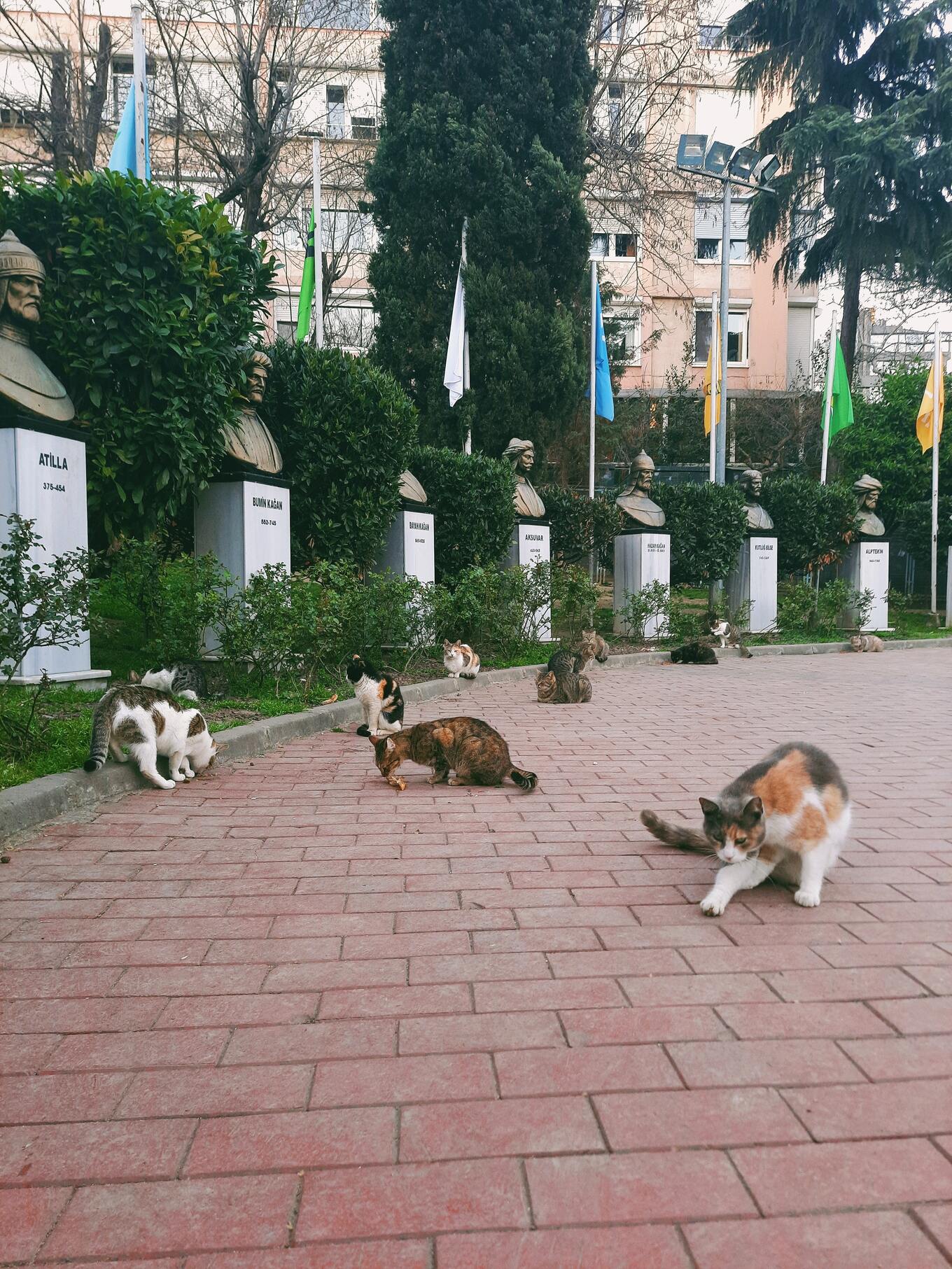 Dilek Yüksel
Dilek Yüksel
Animal welfare in Istanbul
One of the oldest vegan restaurants in Istanbul, Vegan Community Kitchen, in the less-touristy Balat neighborhood, grew out of the protests against Turkish President Recep Tayyip Erdoğan’s anti-democratic power grab that rocked the city in 2013. “We served free vegan food for everyone at a community table,” says founder Oya Toriş, referring to the protest camp that grew in Istanbul’s Taksim Square, the political heart of the nation.
“I was vegan but I didn’t know any other vegans,” she says. “I just fed the cats and dogs at home; I had to be vegan because how else could I be concerned for animals?” The table led to the birth of a network of politically active vegans, and grew into her restaurant.
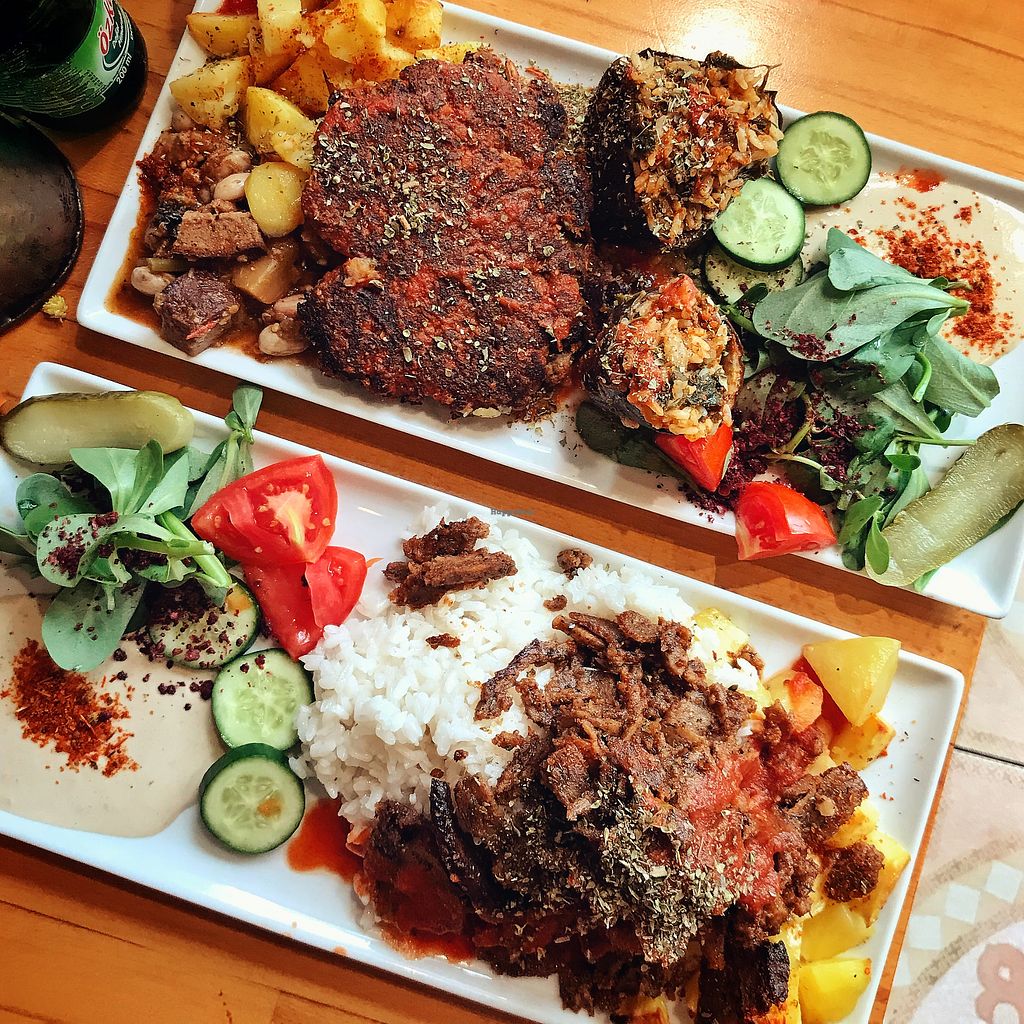 Happy Cow
Happy Cow
Vegan Community Kitchen is a tiny hole-in-the-wall (literally—it sits inside an old Byzantine brick arch) serving a tight menu of traditional dishes like Ersoy’s seitan-based döner on her fresh Turkish flatbread with rice-based yogurt and chili sauce. Everything is homemade: she makes the seitan from scratch in her house across the street, and the effort is evident in the flavor. It’s chewy and fresh, deeply satisfying fare.
A generous approach toward animals living on the streets is an Istanbul tradition going back centuries. Devoted animal lovers like Ersoy feed and care for them, which results in a city teeming with independent cats and dogs with a friendly attitude toward humans.
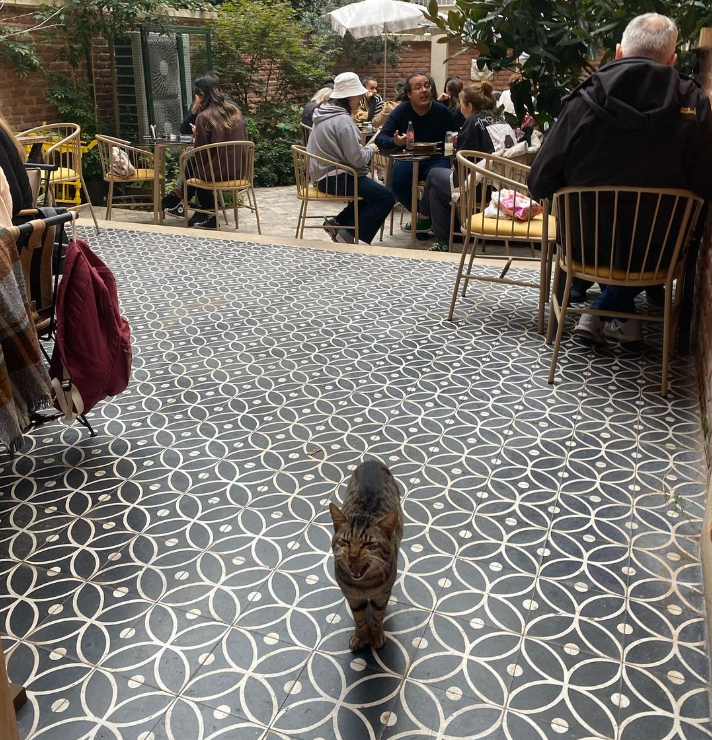 Limonata
Limonata
Still, it can get out of hand. In the garden at Limonita, a vegan spot in Kadiköy, on the Asian side of the Bosphorus, cats jumped up on my table to try and eat my plate of spiced sausage and börek—flaky, fried pastry stuffed with peppers. The young, pink-haired server was kind enough to banish them with a smile, and I enjoyed lunch in the leafy garden, a brief respite from the happy bustle of Kadiköy on a weekend afternoon.
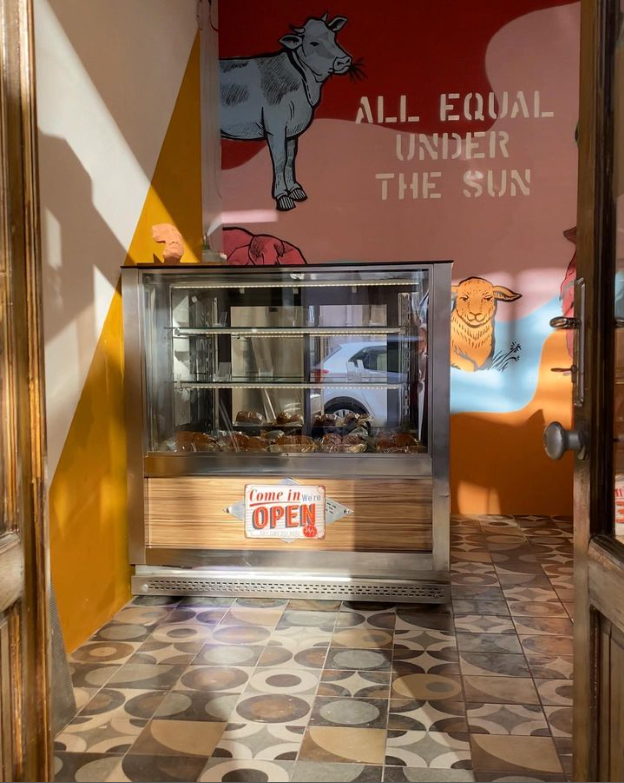 Limonita
Limonita
How inclusive is the vegan scene in Istanbul?
Filled with bars and restaurants, Kadiköy exudes a joie de vivre and a welcoming air. Limonita, as well as other spots in the neighborhood, are self-declared LGBTQ+ safe spaces.
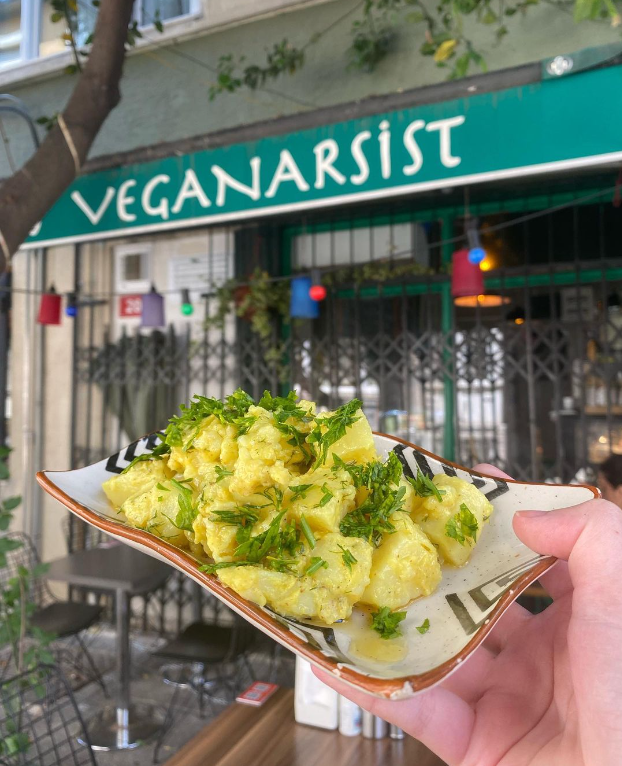 Veganarsist
Veganarsist
It’s also where I found Veganarsist, a small spot filled with smiling Turkish couples. There, I enjoyed warm, savory kofte stuffed with spiced soy and more manti. They were comforting and tender, drenched in tomato sauce and yogurt sprinkled with dried mint. The delicately al dente pasta was filled with spiced lentils, for a hearty and mouthwatering bite.
It struck me as very similar to Vegan Food Cartel, back on the European side near the ever-thronging shopping boulevard of Istiklal Street. Its Iskenderun kebab—tender slices of vegan meat with mildly spicy tomato sauce on housemade flatbread—was a delightful umami experience. And their smoky shish kebab of nicely carbonized and toothsome vegan meat in a tangy and spicy chili sauce over tender rice was a real window into parts of Turkish cuisine that are less easily veganized.
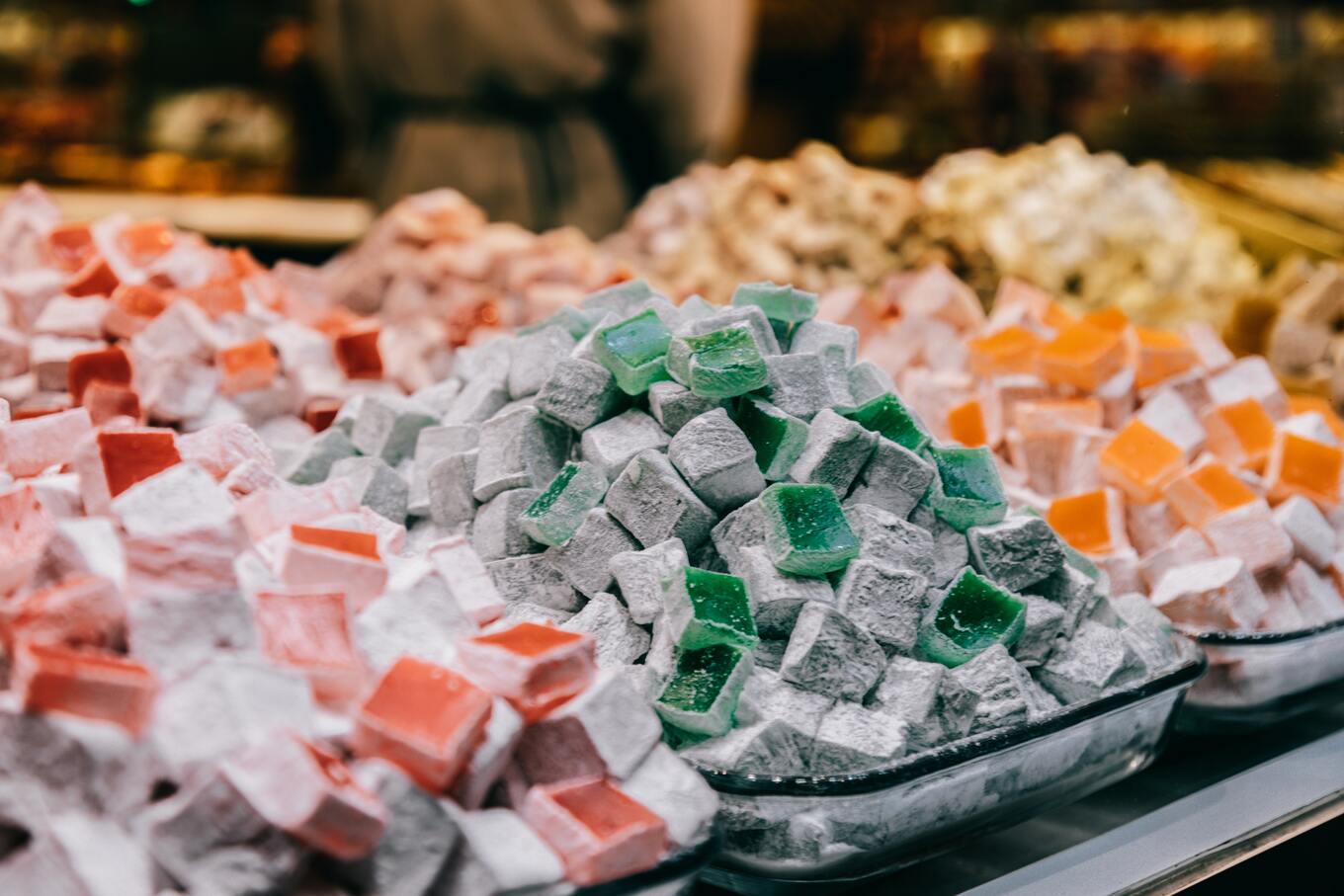 Meruyert Gonullu
Meruyert Gonullu
Where to find vegan sweets in Istanbul?
Lokum, the soft, cornstarch-based sweet developed here in the 18th century and known to most English speakers as Turkish Delight, happens to be vegan.
You’ll see it in gorgeous mounds and pyramids of many translucent colors in the Grand Bazaar. Ask for a taste; it’s tradition to try before buying. The best I had was at Haci Bekir, a sweet shop with several locations that claims to be descended from the inventor of lokum (reportedly the Sultan broke his tooth on a hard candy and demanded an alternative; one Haci Bekir recipe made the cut). Theirs is made with cornstarch and beet sugar and is cooked in huge vats before being poured out and sliced into soft, yielding cubes.
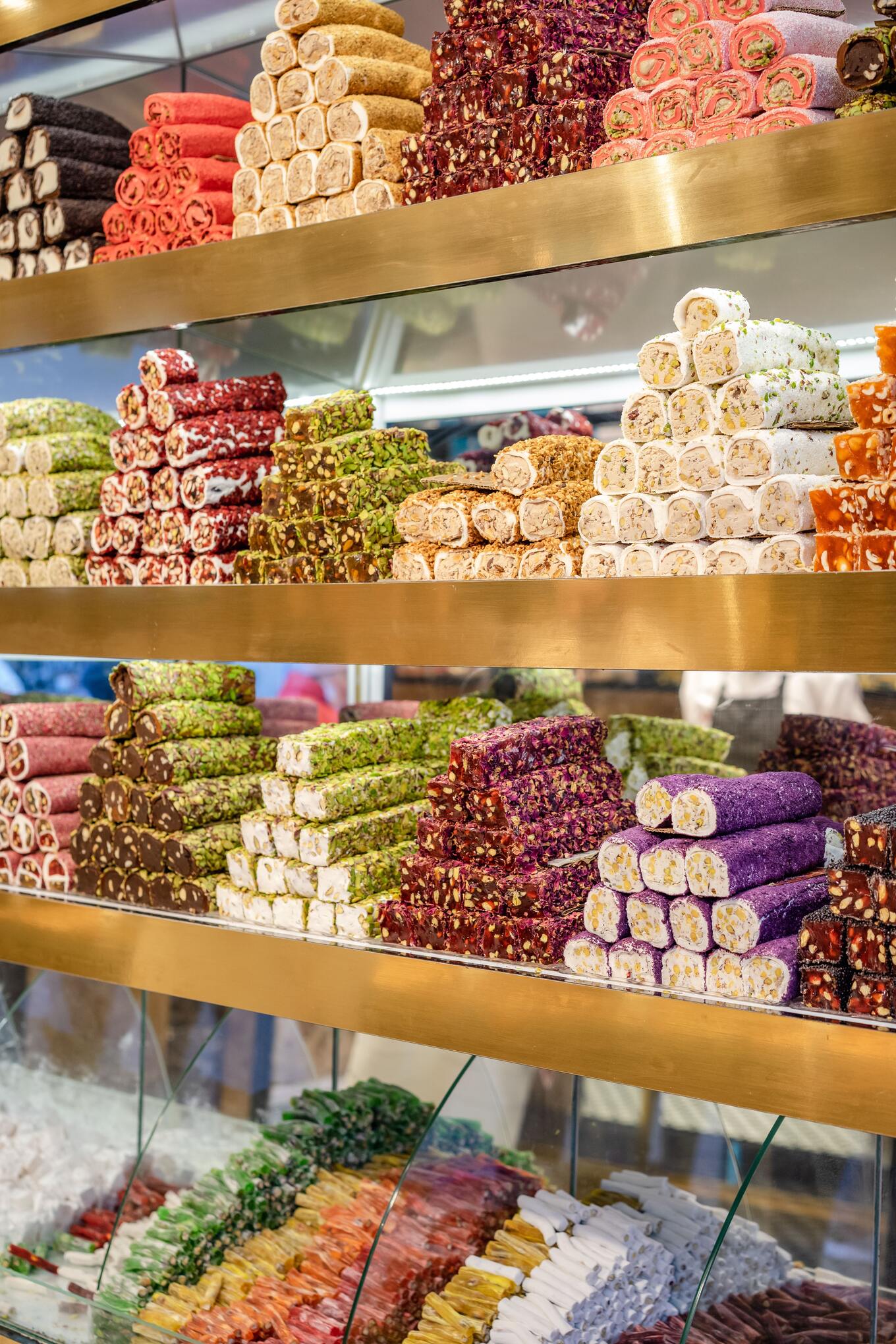 Oleksandr P
Oleksandr P
Try the traditional flavors like pistachio (the soft lokum concealing crunchy, roasted nuts), rose (which is sweet and only delicately floral), or mastic (the sap of a Greektree with a complex, almost piney flavor evoking the rugged Mediterranean coast).
I was also delighted to find veganized versions of other traditional sweets. Güllüoğlu, a vast sweet shop and café in Karaköy that specializes in baklava and its cousins, now has two different vegan baklavas on their menu: one with walnut, another with pistachio.
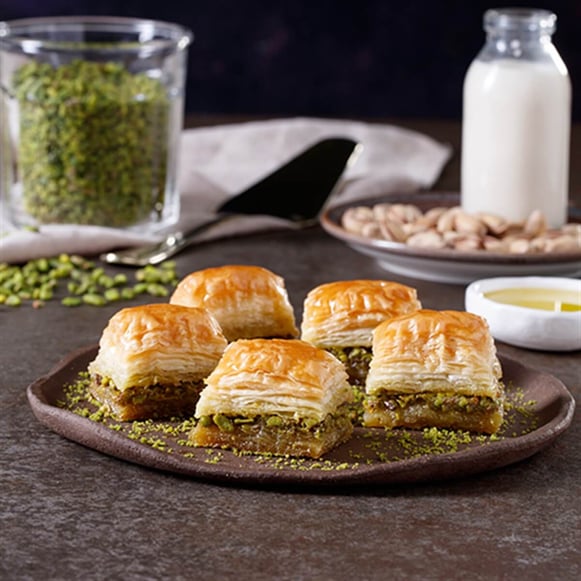 Güllüoğlu
Güllüoğlu
A pastry made from layers of crisp, flaky phyllo sandwiching minced nuts and soaked in sharbat (a traditional sweet syrup), well-made baklava like the ones at Güllüoğlu transcend the individual ingredients. Aficionados eat them upside down, allowing the syrup to soak down into the nuts and flaky pastry for the sweetest bite.
I sat at a little outdoor table shaded from the late morning sun, sipping Turkish coffee and nibbling baklava. The horns of boats plying the Bosphorus, the street cats lounging by the entrance, the sweet and nutty baklava came together in the feeling of Istanbul’s essential eternity.
For more on vegan travel, read:
JUMP TO ... Latest News | Recipes | Guides | Health | Subscribe

